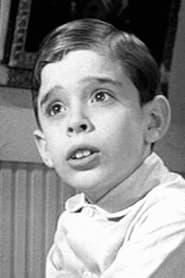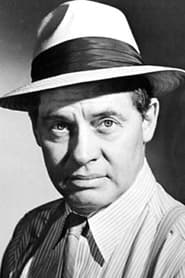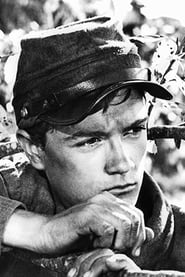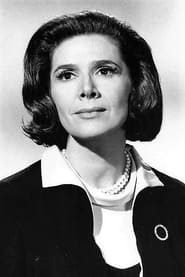In the heart of the Deep South, in the small town of Maycomb, Alabama, lives a spirited young girl named Scout Finch, portrayed by Mary Badham. At the tender age of six, Scout, along with her older brother Jem, spends her days exploring her quaint neighborhood and engaging in imaginative adventures with their friend Dill. The trio often finds themselves captivated by the enigma of Boo Radley, their reclusive neighbor, whose mysterious presence sparks both fear and fascination among the local children. Through their innocent eyes, the audience is introduced to the charming yet complex world of childhood in the racially charged atmosphere of the 1930s.
The story takes a pivotal turn when Atticus Finch, the children's widowed father and a principled lawyer played by Gregory Peck, takes on a controversial case that shakes the foundations of their society. He defends Tom Robinson, a black man wrongfully accused of raping a white woman. As the trial unfolds, the seemingly benign existence of Scout and Jem is irrevocably altered. The events surrounding the trial serve as a crucible, compelling the children to confront harsh realities about racism, injustice, and the societal norms that dictate their lives. Through Atticus's unwavering commitment to justice and moral integrity, Scout and Jem are guided in their understanding of empathy and human dignity amidst the pervasive prejudices of their community.
Throughout the film, the character development of Scout, Jem, and Atticus provides insight into the moral complexities of human nature. Scout's journey from innocence to awareness embodies the loss of childhood naivety, as she grapples with the stark contrasts displayed in the courtroom and the community's reactions. The film not only depicts the struggles of one family but also reflects the broader societal issues of its time, making it a powerful narrative that resonates with audiences even today. "To Kill a Mockingbird" stands as a poignant exploration of humanity, courage, and the quest for justice, emblematic of the enduring fight against discrimination and inequality.
Main Cast of To Kill a Mockingbird

Gregory Peck
Atticus Finch
Gregory Peck's portrayal of Atticus Finch in the 1962 film adaptation of Harper Lee's "To Kill a Mockingbird" is widely regarded as one of the greatest performances in cinematic history. Peck embodies the character with a profound sense of integrity, wisdom, and quiet strength, perfectly capturing the essence of the noble lawyer who stands as a moral beacon in the racially charged atmosphere of 1930s Alabama. His nuanced performance conveys Atticus's deep empathy and his unwavering commitment to justice, as he defends Tom Robinson, a black man unjustly accused of raping a white woman. Peck's Atticus is a paragon of stoicism and humility, teaching his children, Scout and Jem, life's most valuable lessons through his actions and gentle guidance. His measured cadence and piercing gaze underscore the character's intelligence and the gravitas of his mission to confront and dismantle the era's pervasive prejudice. Peck's portrayal resonates with a timeless quality that transcends the film's period setting, imbuing Atticus Finch with an enduring legacy as a symbol of honor and ethical fortitude. For his indelible performance, Peck earned the Academy Award for Best Actor, solidifying his role as an icon of American cinema and cementing Atticus Finch's place as one of the most revered characters in literary and film history.

John Megna
Dill Harris
John Megna's portrayal of Dill Harris in the 1962 film adaptation of Harper Lee's classic novel "To Kill a Mockingbird" is a standout performance that captures the essence of youthful exuberance and imagination. As Dill, Megna brings to life the character's adventurous spirit and boundless curiosity, which are central to the narrative's exploration of childhood innocence in the face of adult complexities. His on-screen chemistry with co-stars Mary Badham (Scout) and Phillip Alford (Jem) is palpable, as they form a trio of friends navigating the mysteries of their small Southern town. Megna's Dill is both endearing and complex, skillfully delivering dialogue with a precocious wit that belies the character's tender age. His performance is a touching embodiment of Dill's role as a confidant and co-conspirator to Scout and Jem, contributing significantly to the film's timeless depiction of the loss of innocence and the moral awakening that accompanies it. Through Megna's nuanced acting, Dill emerges as a memorable character who encapsulates the joys and pains of growing up, making his portrayal a poignant and integral part of the film's enduring legacy.

Frank Overton
Sheriff Heck Tate
Frank Overton delivers a quietly commanding performance as Sheriff Heck Tate in the 1962 film adaptation of Harper Lee's classic novel "To Kill a Mockingbird." As the principled lawman of Maycomb, Alabama, Overton's Tate is a pillar of moral rectitude and restraint, offering a subtle yet impactful portrayal that serves as a foil to the town's simmering racial tensions. His character is a steadfast ally to Atticus Finch, played by Gregory Peck, in the face of prejudice and injustice, and Overton's understated performance effectively conveys the sheriff's integrity and his deep understanding of the community he serves. With a measured voice and a steady, empathetic gaze, Overton's Sheriff Tate navigates the delicate balance between enforcing law and order and recognizing the complexities of human nature, making his character both an authority figure and a compassionate observer of the unfolding drama. His performance is a testament to the power of subtlety, as he embodies the role with a natural gravitas that underscores the film's powerful message about the pursuit of justice in the face of societal bigotry.

Brock Peters
Tom Robinson
Brock Peters delivered a poignant and powerful performance as Tom Robinson in the 1962 film adaptation of Harper Lee's classic novel "To Kill a Mockingbird." As a black man unjustly accused of raping a white woman in the racially charged atmosphere of the American South during the 1930s, Peters' portrayal was a standout feature of the film, bringing to life the quiet dignity and profound tragedy of his character. His nuanced acting conveyed Tom's vulnerability, fear, and stoic resolve in the face of trumped-up charges, embodying the systemic racism that defined the era. Peters' performance was instrumental in eliciting empathy from the audience, as he navigated the complex and tension-filled courtroom scenes, ultimately showcasing the devastating impact of societal prejudices. His work earned critical acclaim, with his portrayal of Tom Robinson standing as one of the most memorable and affecting in the history of American cinema.

Mary Badham
Scout Finch

Phillip Alford
Jem

Rosemary Murphy
Maudie Atkinson
Crew of To Kill a Mockingbird
Full backstage crew list →






